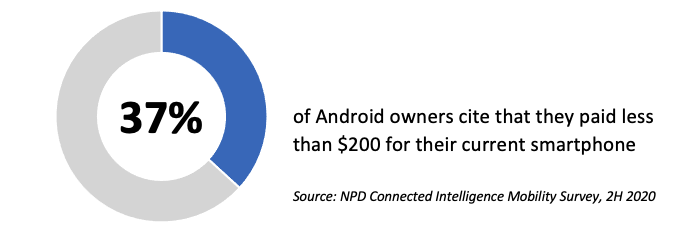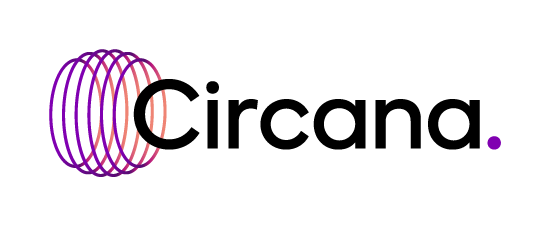
Nokia ramps up smartphone competition with launch of G10
Nokia previously announced the arrival of their G10 smartphone in May 2021, boasting a long battery life and low price of $149. Nokia announced that the superior G20 version is also arriving in the US on July 1 with a slightly higher tag of $200. The G10 sets itself apart from other Android phones by offering two years of OS updates to Android 12 and 13, plus three years of security updates. The G20 has more advanced specs when it comes to its cameras and RAM, but still comes with a modest price tag. The G10 and G20 will be sold unlocked via nokia.com.
NPD Take:
- If consumers are looking for an affordable Android smartphone that will last them a while, this may put Nokia on the map as an attractive. On the other hand, the new phones’ limited distribution via nokia.com will surely limit its potential.
- According to the NPD Connected Intelligence Mobility Survey from 2H 2020, 27% of respondents reported holding onto their previous phone for over 3 years (this figure is 14% for their current smartphones). Could inexpensive phones that are built to last increase purchase cycle length and steer customers away from more expensive mainstream flagships? It certainly sounds more wallet-friendly than expensive devices that face rumors of planned obsolescence.
Verizon enhancing location, location, location
Verizon, through a recent acquisition of Senion, is working on IPS (indoor positioning system). This technology can analyze position and movement of people and devices in an indoor space using sensors. Capabilities of Senion’s technology include precise indoor wayfinding, geofencing, occupancy detection, location sharing, analytics and predictive intelligence when using apps that are location-based and responsive. For now, the carrier is focusing on enterprise applications for this IPS technology such as understanding movement of people, machines, and IoT devices. Verizon envisions improved space management for companies by combining Verizon’s 5G platform with Senion’s capabilities.
NPD Take:
- 5G has been making headlines for its current and future impacts to consumers’ use of connected devices. However, this acquisition presents a new use case for businesses. Mapping indoor positioning could make waves in industries that need to carefully track inventory and placement of that inventory.
- A potential roadblock may be privacy concerns that go along with such precise location tracking. Additionally, if employees are being monitored, they may feel uncomfortable at work.


